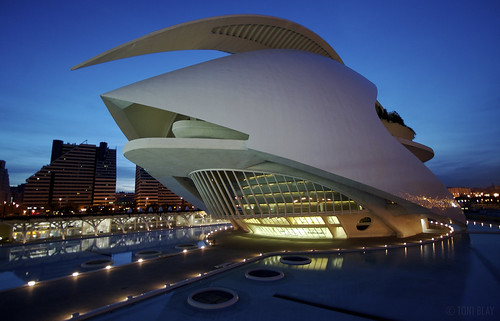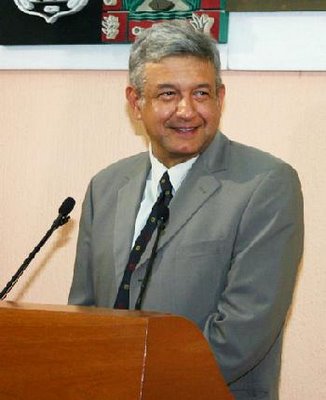ATLANTA, Nov. 24 — Some cities will do anything they can think of to keep young people from fleeing to a hipper town.

Leah Nash for The New York Times
Employees at the Wieden & Kennedy advertising agency, top, at a company basketball game. Below, Nicole Andren assays her shot options.
In Lansing, Mich., partiers can ease from bar to bar on the new Entertainment Express trolley, part of the state’s Cool Cities Initiative. In Portland, Ore., employees at an advertising firm can watch indie rock concerts at lunch and play “bump,” an abbreviated form of basketball, every afternoon.
And in Memphis, employers pay for recruits to be matched with hip young professionals in a sort of corporate Big Brothers program. A new biosciences research park is under construction — not in the suburbs, but downtown, just blocks from the nightlife of Beale Street.
These measures reflect a hard demographic reality: Baby boomers are retiring and the number of young adults is declining. By 2012, the work force will be losing more than two workers for every one it gains.
Cities have long competed over job growth, struggling to revive their downtowns and improve their image. But the latest population trends have forced them to fight for college-educated 25- to 34-year-olds, a demographic group increasingly viewed as the key to an economic future.
Mobile but not flighty, fresh but technologically savvy, “the young and restless,” as demographers call them, are at their most desirable age, particularly because their chances of relocating drop precipitously when they turn 35. Cities that do not attract them now will be hurting in a decade.
“It’s a zero-sum game,” said William H. Frey, a demographer with the Brookings Institution, noting that one city’s gain can only be another’s loss. “These are rare and desirable people.”
They are people who, demographers say, are likely to choose a location before finding a job. They like downtown living, public transportation and plenty of entertainment options. They view diversity and tolerance as marks of sophistication.
The problem for cities, says Richard Florida, a public policy professor at George Mason University who has written about what he calls “the creative class,” is that those cities that already have a significant share of the young and restless are in the best position to attract more.
“There are a dozen places, at best, that are becoming magnets for these people,” Mr. Florida said.
That disparity was evident in a report released this week by the Metropolitan Atlanta Chamber of Commerce, which showed Atlanta leading the pack among big cities, while other metro areas, like Philadelphia, hemorrhaged young people from 1990 to 2000. (In this competition, surveys that make a city look good are a favorite opening salvo.)
In that decade, the Atlanta study said, the number of 25- to-34-year-olds with four-year college degrees in the city increased by 46 percent, placing Atlanta in the top five metropolitan areas in terms of growth rate, and a close second to San Francisco in terms of overall numbers. Charlotte, N.C., also outperformed Atlanta, with a growth rate of 57 percent, the second highest in the country after Las Vegas.
(Demographers point out that Las Vegas started with very small numbers and still ranks last among major cities when it comes to the percentage of its 25- to 34-year-olds with a college degree.)
Atlanta did particularly well with young, educated blacks — a boon for employers seeking to diversify their ranks. The city’s report zeroed in on people like Tiffany Patterson, 27, who on a recent Thursday night was hanging out at Verve, the sleek new Midtown bar and restaurant that is one of her marketing clients.
The place was thrumming with young African-Americans in leather jackets, stilettos or pinstripe suits — the kind of vibe, said Ms. Patterson, who is from Dallas, that made her stay in Atlanta after college.
“If I go home, women my age are looking for a husband,” she said. “They have a cubicle job.”
In Atlanta, Ms. Patterson said, she can afford a new town house. A few years ago, she decided to leave her financial sector job and start her own business as a marketing consultant.
“I thought, I can break out and do it myself,” she said. “It really is the city of the fearless.”
The recent study, based on census figures and conducted by Joe Cortright of Impresa Consulting in Portland and Carol Coletta, president and chief executive of CEOs for Cities, a nonprofit organization in Chicago, showed that Atlanta won its net gain in educated young people by luring them from New York, Washington, Los Angeles, Chicago and Houston.
“What we’re seeing is the jury of the most skeptical age group in America has looked at Atlanta’s character and likes it,” Sam A. Williams, the president of the Chamber of Commerce, said.
But Mr. Williams acknowledged the difficulty of replicating that phenomenon on purpose.
Had the chamber tried to advertise Atlanta, he said, “we might have screwed it up —because they’re much more trusting of their own network than they are of any marketing campaign.”
“You can’t fake it here,” he said. “You either do it or you don’t.”
In addition to Atlanta, the biggest gainers in market share of the young and restless were San Francisco; Denver; Portland; and Austin, Tex. The biggest losers included Washington, Philadelphia, New York and Los Angeles.
But some of the losing cities have been trying hard to forestall their losses, in part by focusing on talented workers who want a certain lifestyle instead of big employers that have traditionally been interested in tax credits and infrastructure.
Steven W. Pedigo, the research director for the Greater Washington Initiative, a regional economic group, said the numbers there had begun to turn around. Stephanie Naidoff, Philadelphia’s director of commerce, said a major effort to draw college students off campus with things like internships and concert tickets was paying off, increasing the city’s graduate retention numbers.
Studies like Atlanta’s are common these days. From Milwaukee to Tampa Bay, consultants have been hired to score such nebulous indexes as “social capital,” “after hours” and “vitality.” Relocation videos have begun to feature dreadlocks and mosh pits instead of sunsets and duck ponds. In the governor’s race in Michigan this fall, the candidates repeatedly sparred over how best to combat “brain drain.”
But determining exactly what works is not easy. In Atlanta, focus group participants liked the low cost of living, an airport hub that allowed easy travel and what they perceived as a diverse and open culture.
And Atlanta has some strong advantages, of course. There are some 45 colleges and universities in the metro area. The Cartoon Network is based here, as are scores of companies in the technology and entertainment sectors. The music industry is another draw for the creative class. And the city has large international and gay populations, considered strong indicators for popularity with the young and restless.
“Atlanta’s just one of those mixes,” said T. J. Ashiru, 30, a Nigerian who chose Atlanta over New York for college shortly after the 1996 Olympics were held here, and stayed to begin his career in finance. “The Olympics was basically the catalyst for what Atlanta became.”
In some cases, cities have done well in the competition without even overtly trying. Charlotte has done well without either a major university or the kind of strong identity — like Austin’s position as a live music capital — that helps put cities on the young-and-restless map.
At the Charlotte Chamber of Commerce, Tony Crumbley, the vice president for research, said the city and state had done a lot of things right without realizing it, like establishing liberal banking laws that made Charlotte a financial capital, and redeveloping downtown in the 1980s.
“Another thing,” Mr. Crumbley said, “there are more Frisbee golf courses in this area than any other place in the country.”
Still, what works in one city will not work in others, Mr. Cortright said, and not all young people are looking for the same things. He cites Portland’s bike paths, which many point to as an amenity that has helped the city attract young people.
“I think that confuses a result with a cause,” Mr. Cortright said. Portland happened to have a group who wanted concessions for cyclists and was able to get them, he said.
“The real issue was, is your city open to a set of ideas from young people, and their wish to realize their dream or objective in your city,” he said. “You could go out and build bike paths, but if that’s not what your young people want, it’s not going to work.”











 Congress
Congress 







 Male crayfish
Male crayfish 










